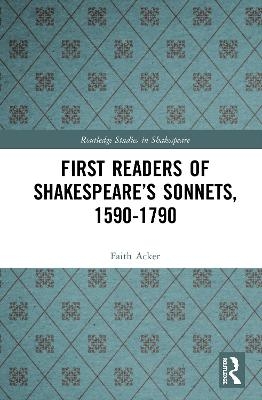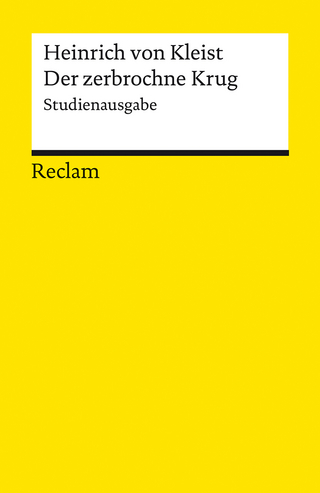
First Readers of Shakespeare’s Sonnets, 1590-1790
Routledge (Verlag)
978-0-367-50136-5 (ISBN)
Faith D. Acker received her doctorate in Renaissance Literature from the University of St Andrews. Subsequently, and while writing this book, she has taught at The University of Sheffield, Cornerstone Academy, Pellissippi State Community College, Northern Virginia Community College, Montgomery College, and Signum University. Her additional work on the sonnets’ early readers appears in Canonising Shakespeare: Stationers and the Book Trade, 1640-1740 (eds. Depledge and Kirwan, 2017) and is forthcoming in Shakespeare Quarterly.
The Author to the Reader
Introduction: ‘The Meaning’ of the Sonnets
The Sonnets, their texts, and their readers
The Passionate Pilgrim and Shakespeare’s ‘sugred’ reputation
Texts and editions
Pilgrim as a sonnet sequence
Shakespeare’s vendible name and relevant prints
Supplementing Shakespeare with the classics
Reading and revising the sonnets
Reading and Revising Shake-Speare’s Sonnets (1609)
Structure, contexts, and paratexts of the 1609 quarto
Thorpe and the critics
Sonnets and sequences: Revisionist love stories
Reading Thorpe’s Sonnet 2
Annotating the sonnets
The manuscripts of Sonnet 2: Sex, sonnets, and spirituality
Extant manuscript copies of Sonnet 2
Sexual contexts for Sonnet 2
Sonnet 2 in politics and religion
Friends and elegies: Reading Sonnet 2 among epitaphs
John Benson’s sonnet sequences (Poems: Written by Wil. Shake-speare. Gent.)
Benson and Shakespeare
Part I: Eternity of beauty
Part II: Miscellaneity and duality
Part III: A Marriage of perjured minds
Part IV: Classics and imputed works
Celebrations of Church and King: An early Cambridge reader
Reading habits and approaches
Cambridge origins
Poems in praise of God
Poems to honour the King
Contextualizing women
For the love of God, not woman
Restoration revisions: Musical, dramatic, and miscellany readings
Mountebanks and martyrs: Lawes’ musical setting
Gender, duplicity, and eternal passion: Suckling’s Brennoralt
Manuscript variants and textual fluidity: Reading and sharing
Extracts, miscellanies, and new contexts: Adapting the sonnets in the late seventeenth century
Supplementing Shakespeare and creating the canon
Critical predilections: The autobiographical Shakespeare
Life after Benson: Supplements and supplementarity
Notes and Various Readings: The ultimate supplement
Capell’s cento and Shakespeare’s language
Collecting Shakespeare: Complete and incomplete canons
Edmond Malone: Plotting the Sonnets
The Search for authorial authenticity
Poems and plays
The Editor and his characters
Reading the Sonnets after Malone: Independent responses
Debating the poems: Critical annotations
Sonnet sententiae
Reading and editing the eighteenth century
Beyond Malone: The New debate
Sonnet Futures
| Erscheinungsdatum | 24.09.2020 |
|---|---|
| Reihe/Serie | Routledge Studies in Shakespeare |
| Zusatzinfo | 9 Illustrations, black and white |
| Verlagsort | London |
| Sprache | englisch |
| Maße | 152 x 229 mm |
| Gewicht | 453 g |
| Themenwelt | Literatur ► Lyrik / Dramatik ► Dramatik / Theater |
| Geisteswissenschaften ► Sprach- / Literaturwissenschaft ► Anglistik / Amerikanistik | |
| Geisteswissenschaften ► Sprach- / Literaturwissenschaft ► Literaturgeschichte | |
| Geisteswissenschaften ► Sprach- / Literaturwissenschaft ► Literaturwissenschaft | |
| ISBN-10 | 0-367-50136-8 / 0367501368 |
| ISBN-13 | 978-0-367-50136-5 / 9780367501365 |
| Zustand | Neuware |
| Haben Sie eine Frage zum Produkt? |
aus dem Bereich


